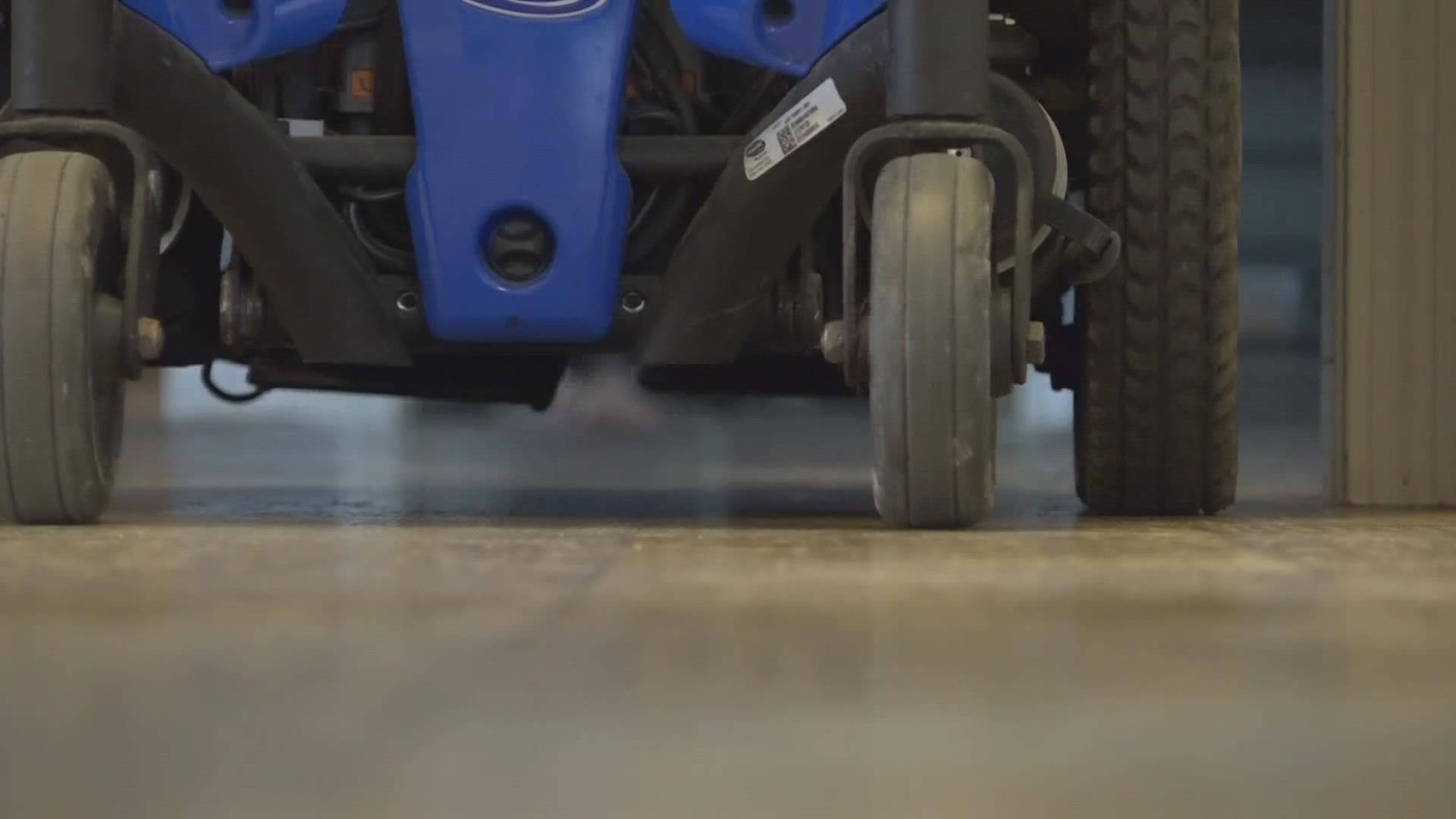BRUNSWICK, Maine — Finding housing in Maine is not easy for anyone right now, and it's even more challenging for those who need to find handicap-accessible accommodations. Some are even resorting to moving into homes that aren't accessible for them to have a place to live.
Joshua Weidemann, 32, is one of those people. He has cerebral palsy and is in a wheelchair. He said it'd been a challenge to find housing.
"Group homes are closing, shared living [homes] are closing, where are we gonna place our people?" Weidemann said.
Weidemann is in shared living through Maine DHHS, which means a family opened up their home to him.
But the problem with that? Weidemann said when DHHS tries to place people in shared living, they look for a home that is already handicap accessible.
"Let me tell you, those are very hard to find," he said.
That's because Medicaid will pay for a person to update their home to make it handicap accessible, but only if the disabled person owns that property. In Weidemann's case, the family who owns his home has installed ramps for him, but the bathroom still isn't accessible because he needs to be able to roll in and out of the shower, and with a lack of contractors to do the work, he has been waiting since he moved in.
"[The homeowner is] willing to pay. That's not the issue. The issue is, why should she have to?" Weidemann said.
"This [is an] issue of accessible housing, period. Never mind shared living, but accessible housing is a big issue in Maine," Peter Rice, an attorney with Disability Rights Maine, said. He's worked with Weidemann.
Rice said this handicap-accessible housing shortage has been happening "forever."
He added that two of the most significant issues with accessible housing are that Maine has such old buildings that weren't designed with accessibility in mind and that many disabled people don't own their own homes.
"It's really difficult because [Weidemann] is entitled to live in a home that is accessible to him. He's not," Rice said.
Weidemann has also worked on legislation, including a bill to expand the number of people who qualify for home accessibility modifications under MaineCare.
The Legislature decided not to pursue that bill back in March 2020, right before the pandemic began.

